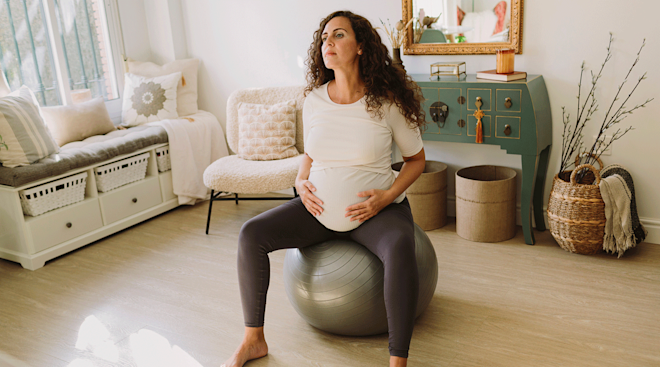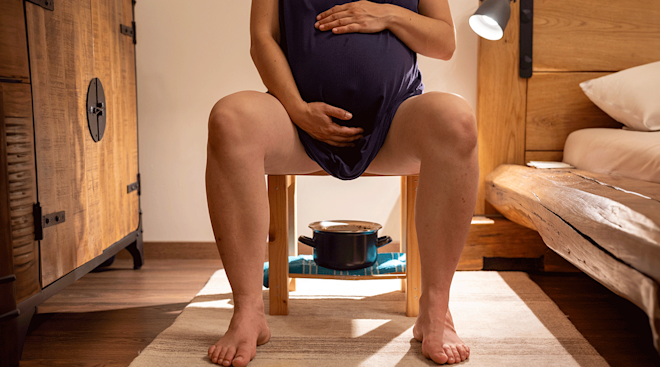Checklist: Questions for Black Moms to Ask When Interviewing OBs
Racism is a factor in the quality of life of every African American. For Black mothers, the joy of seeing their children grow up is often tempered with fear of how they’ll be treated by the world. Black moms fear for the life and safety of their children in ways other moms don’t. What’s more, before a Black mom even gives birth, she may not only fear for her baby’s life, but also for her own.
For all women, the journey of pregnancy comes with a unique set of concerns. There’s stress about how your body will change. There’s anxiety around everything you do (or maybe don’t do) to help grow and nurture a healthy baby. Prenatal care providers listen for baby’s heartbeat, measure amniotic fluid and monitor fetal growth, but simply checking these things off a list isn’t always enough. The goal of a healthy pregnancy is to deliver a healthy baby; what seems less obvious is that healthy babies need healthy moms too. Unfortunately, the US has the highest maternal mortality rate of all developed countries. If you’re a Black expectant mom, you’re three times more likely to die from pregnancy-related causes than white women, according to the American Medical Association. Although there are no decisive reasons for the depths of this disparity, studies support that implicit bias and racism play a major role in the care soon-to-be Black moms receive.
The discouraging reality is that doctors and other care providers aren’t exempt from being prejudiced. “I think there are assumptions made about Black mothers based on how they look (‘poor, uneducated, single mom’),” says Robin Ferguson, a child life specialist and program director for Inland Regional Center in San Bernardino, California. She adds that providers may not always take the time to talk through an individual patient’s needs, pregnancy concerns and family situation. That’s why she knows it’s so important to advocate for children and moms.
Theresa Buckson, MD, an ob-gyn at South Miami Hospital, asserts that we all have implicit biases. But biases about a Black mom-to-be can exacerbate certain risk factors and put her life in jeopardy. “It has been shown in numerous studies that Black people receive less pain medication than their white counterparts,” Buckson notes, adding that the way Black women are treated in emergency situations could also lead to negative outcomes. “Perhaps another bias is the notion that whatever is happening to a particular Black patient that they will be okay.” Buckson elaborates that there’s often a lack of urgency when tending to a Black mom’s medical problems during pregnancy or labor, and by the time an issue is addressed, her condition may have deteriorated and the situation is more critical. “It’s like their lives are undervalued,” Buckson says.
Socioeconomic status doesn’t necessarily change this dynamic, Buckson says. Case in point: Professional athlete Serena Williams had a harrowing experience after delivering her daughter in 2017. When Williams fell short of breath, she told her medical team she needed a CT scan for a potential pulmonary embolism but was initially ignored and disregarded. Fortunately, she continued to advocate for herself and eventually received the care she desperately needed.
Given the disparity in outcomes, OBs and midwives need to understand the unique fears Black women experience in order to sufficiently address them, says Buckson. “They also need to know that Black women are at higher risk for conditions during pregnancy such as high blood pressure, preterm labor, preterm birth and death.” While there’s much progress to be made, it’s important for patients to set expectations and vet their own care. Buckson shares some thoughts for what moms should expect and insist on during their prenatal appointments:
- You should be able to express your concerns freely.
- You should be an active decision-maker along with your doctor. Ask them to explain terms, tests and procedures in a way that you, as a non-medical professional, can understand.
- Your doctor should be accessible: You should have a way to reach them to voice concerns during and after office hours.
- You should have your voice heard without judgment.
Not all providers are created equal, so before selecting an ob-gyn or midwife to partner with during pregnancy, consider developing a list of questions to ask. Ultimately, this can help inform you and reduce some of the fears around the outcome of your birth experience. Asking other moms for recommendations is another great way to start your search. “Talk to women in your circle or community about their pregnancy and birth experiences. They often know the best doctors and care providers to assist you on your journey,” Ferguson says.
Once you find a potential ob-gyn or midwife, set up an interview appointment. You can and should feel empowered to ask questions and make sure they’re the right fit for your needs. Here are five initial questions to build on:
What is your philosophy, mission statement and goals for pregnant moms? Every doctor or birthing professional should have an approach to prenatal care. Ferguson recommends asking this question to find out if a doctor’s vision aligns with your own.
Are you aware of the disparity in morbidity and mortality with Black pregnant moms versus other races?
A lack of awareness around this glaring disparity makes it unlikely your fears will be addressed or that a system will be put in place to keep you from becoming another statistic.
How many Black patients have you had, and what were their birth outcomes?
The answer to this question will let you know a provider’s diversity of experience and help gauge their success rate with former patients that share your background and risk factors. What’s more, Ferguson suggests trying to connect with past patients or colleagues to get additional feedback.
What’s your c-section rate or that of this medical group?
The fact is: Black moms experience more c-sections, and this comes with its own risks. You want to know how many of those surgeries were necessary or discretionary, as well as their outcomes.
How will you handle a concern during my pregnancy even if you believe it’s trivial or not important?
Many Black moms-to-be have been ignored when they complain about pain or other symptoms. You don’t want your worries glossed over; you know your body and you need a provider that will trust you when you say something doesn’t feel right.
In the end, the most important thing to remember is that it’s your life on the line, so don’t be shy about asking questions and taking a stance. Ferguson advises Black moms-to-be to strongly advocate for better care—not only for themselves but for moms who will follow in their footsteps. “If your doctor is not receptive to what you’re saying, or if you are not receiving appropriate care, try to find a new physician,” advises Ferguson. She adds: “If you’re ever treated adversely, go up the chain. Let your insurance and medical managed care programs know how you were treated. This can lead to change in the future for other pregnant women.”
All moms-to-be deserve quality prenatal care. As a Black expectant mom, the burden shouldn’t have to be on you, but it’s important that you feel empowered to advocate for yourself. You want to have faith that your birth professional will do everything humanly possible to safely deliver baby and prevent you from becoming another statistic. That starts with asking questions and not compromising your expectations.
About the experts:
Theresa Buckson, MD, is an ob-gyn at South Miami Hospital. She received her medical degree from Virginia Commonwealth University School of Medicine in Richmond.
Robin Ferguson, MS, CCLS, is a child life specialist and program director for Inland Regional Center in San Bernardino, California. She received her master’s degree in child life studies at Loma Linda University in California.
Please note: The Bump and the materials and information it contains are not intended to, and do not constitute, medical or other health advice or diagnosis and should not be used as such. You should always consult with a qualified physician or health professional about your specific circumstances.
Plus, more from The Bump:
Navigate forward to interact with the calendar and select a date. Press the question mark key to get the keyboard shortcuts for changing dates.




















































